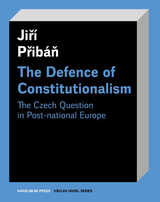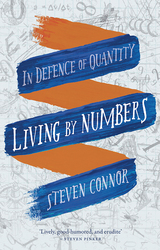



Helen Gardner is a vigorous and eloquent champion of traditional literary values. These values have been subverted, she feels, by some of the ablest of modern academics and by prevalent tendencies in criticism and teaching today. She discusses the new schools of criticism which exalt the sometimes unintelligible theorist above the creator of the work of art, the imaginative interpreter of life, or which replace the authority of the author with that of the reader. She regrets the tendency of teachers to emphasize contemporary literature to the neglect of the great writings of the past and to teach past literature only if it can somehow be made “relevant.” She reproves theater directors who distort Shakespeare's plays and who convert serious drama into happenings. And she finds that biographers of writers are so preoccupied with the inner lives of their subjects that the writings become psychological documents rather than works of the imagination.
In a closing chapter, partly autobiographical, she affirms the values she has found in a life devoted to the study of literature. Even the most polemical sections of the book are courteous and good-humored. Her own lucidity, range of reference, and passionate concern for literature are in themselves powerful affirmations of her argument.

Connor explores a host of thought-provoking aspects of our numerical existence. He looks at the unexpected oddities that shape the loneliest number—the number one. He looks at counting as a human phenomenon and the ways we negotiate crowds, swarms, and multitudes. He demonstrates the work of calculation as it lies at the heart of poetry, jokes, painting, and music. He shows how we use numbers to adjust to uncertainty and chance and how they help us visualize the world in diagrammatic ways, and he unveils how numbers even help us think about death. Altogether, Connor brings into relief an aspect of our lives so ubiquitous that we often can’t see it, unveiling a rich new way of thinking about our existence.

Eclectic essays on ethics, education, and much else besides.
Plutarch (Plutarchus), ca. AD 45–120, was born at Chaeronea in Boeotia in central Greece, studied philosophy at Athens, and, after coming to Rome as a teacher in philosophy, was given consular rank by the emperor Trajan and a procuratorship in Greece by Hadrian. He was married and the father of one daughter and four sons. He appears as a man of kindly character and independent thought, studious and learned.
Plutarch wrote on many subjects. Most popular have always been the forty-six Parallel Lives, biographies planned to be ethical examples in pairs (in each pair, one Greek figure and one similar Roman), though the last four lives are single. All are invaluable sources of our knowledge of the lives and characters of Greek and Roman statesmen, soldiers and orators. Plutarch’s many other varied extant works, about sixty in number, are known as Moralia or Moral Essays. They are of high literary value, besides being of great use to people interested in philosophy, ethics, and religion.
The Loeb Classical Library edition of the Moralia is in fifteen volumes, volume XIII having two parts. Volume XVI is a comprehensive Index.
READERS
Browse our collection.
PUBLISHERS
See BiblioVault's publisher services.
STUDENT SERVICES
Files for college accessibility offices.
UChicago Accessibility Resources
home | accessibility | search | about | contact us
BiblioVault ® 2001 - 2024
The University of Chicago Press









